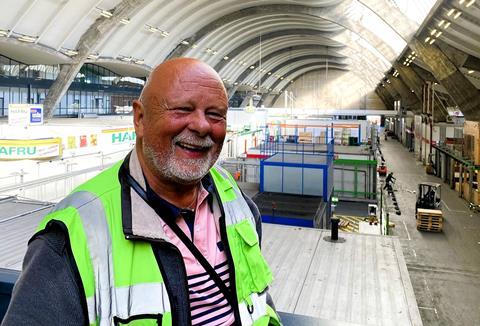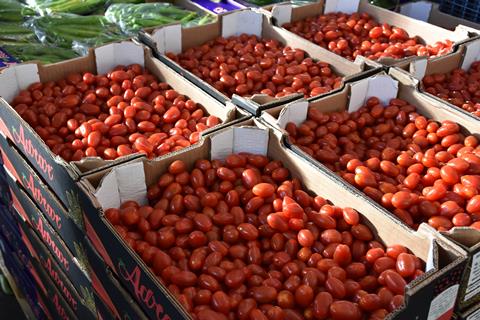City’s wholesale market now handles 1.5mn tonnes of fresh produce a year to maintain its position as a premier fresh produce trading hub
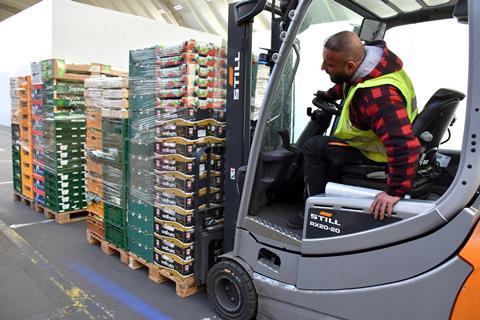
At two in the morning, when Hamburg’s streets are silent and the nearby River Elbe is shrouded in mist, the cavernous halls of the Grossmarkt come to life.
For the next few hours, the noise inside the city’s main fruit and veg wholesale market is intense: forklift beeps echo around its halls as crates of fresh produce are placed noisily on pallets, and traders shout to each other enthusiastically as money and produce changes hands.
Remarkably, it’s a scene that hasn’t changed a great deal in decades – despite intense competition from the now ubiquitous supermarket chains – and part of the its ability to endure appears to lie in the market’s centrality.
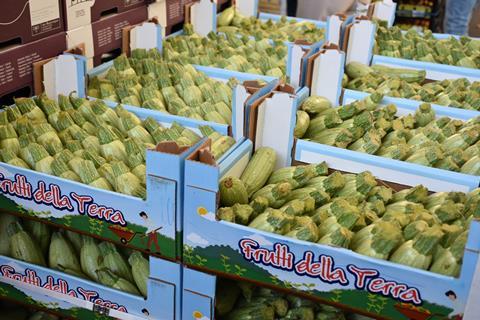
“This market brings the sellers and commercial buyers all together under one roof to make sure the shelves of the city’s retail outlets are full, each day, of fresh quality produce,” says Joachim Koehler, who sold fruit and veg at Hamburg Grossmarkt for almost five decades, and now leads guided tours around the site.
He knows what makes the market tick. “During my time as a trader here, I got to know, and still do, so many characters in the fruit and veg industry,” he says. It’s always busy, he notes.
“The market really is the beating heart of Hamburg. It is always fully booked with no free space available. Local produce can change hands maybe only two or three times before it ends up with the consumer. The international produce that we handle here can change hands maybe up to ten times.”
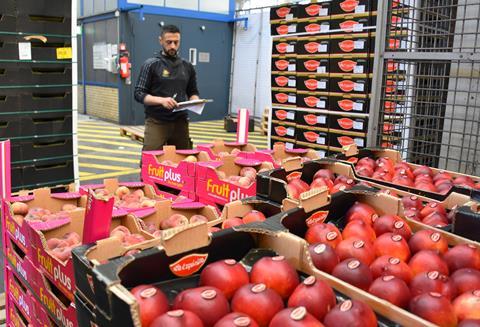
International reach
It’s remarkable how long the market has played such a pivotal role. It has supplied fresh produce to customers not just in Hamburg but throughout northern Germany, Scandinavia and eastern Europe for more than a century, and for over six decades at its current 27ha site in the city’s Hammerbrook quarter.
Each year, while most of Hamburg’s 1.85mn inhabitants sleep, the market’s 330 companies and 3,000 employees handle 1.5mn tonnes of seasonal fruit and vegetables, ensuring its 6,200 commercial customers get the freshest produce available.
That equates to annual turnover of around €2bn for the fruit and vegetables, and another €80mn in flower sales, all generated in the small hours of the morning, six days a week.
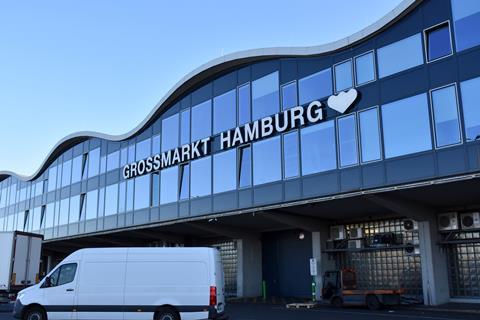
By 6am, when the hustle and bustle subsides, the dealing is mostly done and delivery trucks are loaded and on their way to eateries and retail outlets.
Despite handling 1.5mn tonnes of produce, Koehler says the waste created by the market is below 1 per cent. Every day, this is collected and sent away, to be recycled through a biogas plant that converts it to energy.
He adds: “We ensure the entire place is kept clean and tidy, with all areas brushed up at the end of each day. No pets or animals are allowed to enter the market at any time and we see very few pests arrive on the fruit and veg. We also run a programme where some fruit and veg is handed out to poorer people in the community.”
The Grossmarkt retains a notable family business feel. “Some traders are already in their fourth or fifth generation as wholesalers. They supply supermarkets, independent specialist retailers, the catering trade as well as hotels, canteens and hospitals.”
Having worked all through the night, the traders tend to go to bed in the early afternoon. It’s a hectic schedule that Koehler remembers very well. “The hours are quite unsociable,” he admits. “However, you get used to the routine and it becomes a way of life.”
